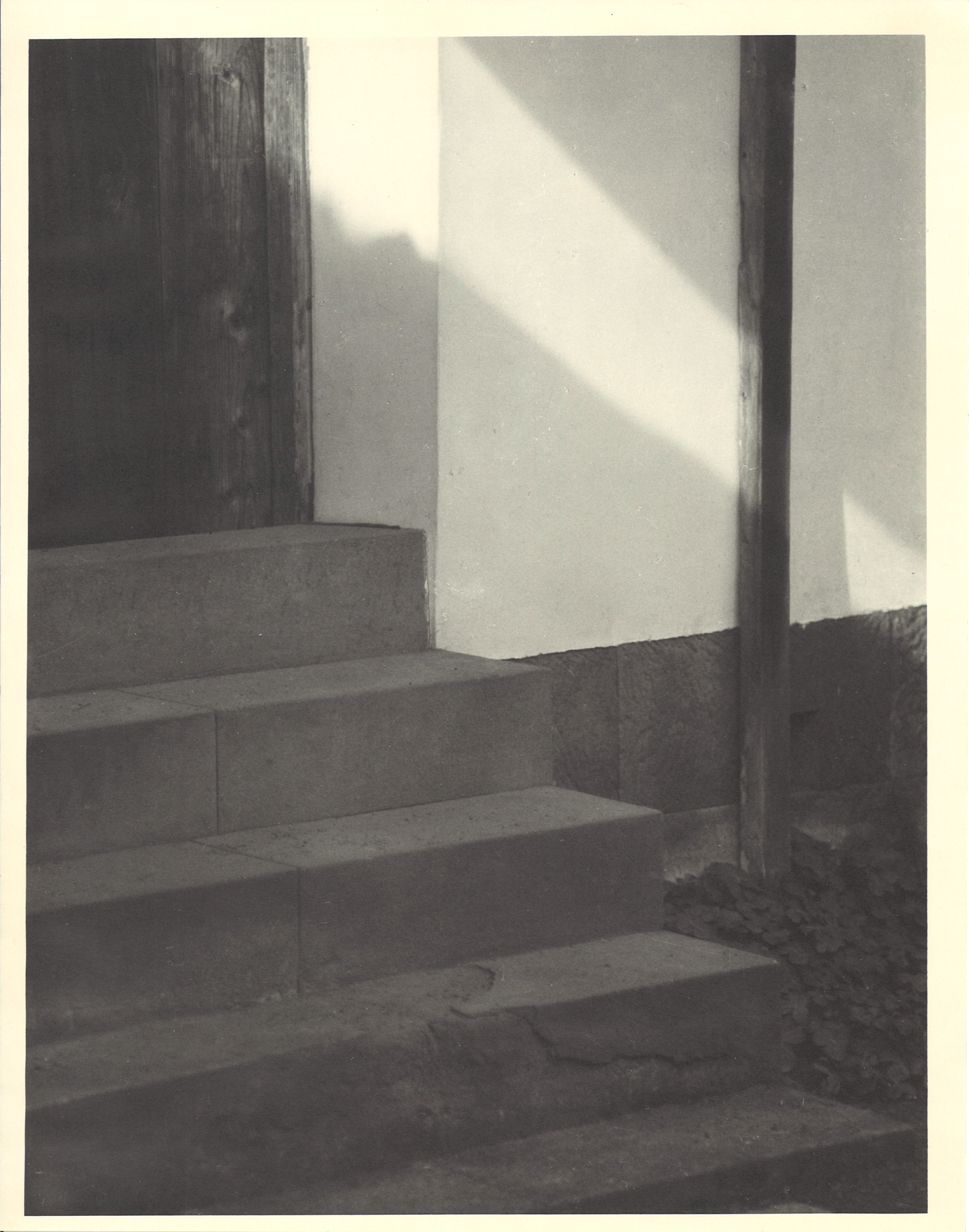Photographers of Japan
Vol.11 "Fukuhara Shinzo 1883-1948 --
Japanese Landscape Photography
"
| by Kotaro Iizawa (Critic and historian of Photography) |
Fukuhara Shinzo was born in Kyobashi-ku, Tokyo, in 1883. His father, Arinobu, was a businessman who ultimately became the founder of Shiseido Company. His brother 9 years below him, Fukuhara Roso (Nobutoki) became a photographer.
Shinzo was only the fourth son, but due to his brothers’ weak health and early deaths, was expected to be the next head of Shiseido from a young age. After graduating from Chiba University School of Medicine, he went to the United States to study at Columbia University in 1908 and upon graduating from Columbia, worked and researched in New York at drug stores and cosmetics manufacturing plants. But Shinzo, who had enjoyed drawing since his youth and had begun taking “artistic photos” as a member of the Tokyo Photo Club, found himself hesitant at the idea of continuing down the road of business. In 1913, before returning to Japan, he spent 6 months in Paris, where he took landscape photos of the Seine. These photos were published in 1922 as “Paris and the Seine” (Shashin Geijutsusha); with their youthful romanticism carved in bold compositions, this collection became a landmark work for Japanese “artistic photography”.
After returning to Japan in 1916, Fukuhara Shinzo established the cosmetics department of Shiseido and led a busy life as a businessman. But the flame of photography still burned in his heart, and in 1921 Shinzo founded Shashin Geijutsusha with Otaguro Motoo, Kakefuda Isao, and Fukuhara Roso, and began to publish the high level photo magazine “Shashin Geijutsu”. This magazine became the stage on which Shinzo developed the idea of “Hikari to Sono Kaicho” (Light and its Harmony). His arguments which emphasized “the harmony of the scene - the shades and tones caused by the intensity of the light” were collected and published in “Hikari to Sono Kaicho” (Shashin Geijutsuasha) in 1923, a volume which left a great influence on the Japanese photographers of the time. Like haikus, Japanese landscape photos developed a unique sense for the views which change ever so subtly with the shifting of the seasons; it was surely Fukuhara Shinzo who first lined out how to dissect the world so.
Afterwards, Shinzo dissolved Shashin Geijutsusha and became president of the Japan Photographic Society (est. 1924) and published such collections as “Saiko Landscape” (Japan Photographic Society, 1931), “Matsue Landscape” (JPS, 1935), and “Hawaii Landscape” (JPS, 1937). Each volume was beautifully bound, permeated throughout with the delicate artistic sense of the man who personally designed Shiseido’s “hanatsubaki” logo. As the 1940s went on, the wartime regime grew stronger and restricted freedoms so that the photographers’ production became virtually impossible; Shinzo himself developed cataracts and lost his vision, leading to lonely final years. However, the poetic world of his photographs survived and from the 1980s and on became highly regarded in not only Japan, but the USA and Europe as well.

Shinzo FUKUHARA
"Hearn's Old Residence / Matsue・Shimane"
1935
Photograph(Baryta paper)
Image size:34.2x26.2cm
Sheet size:36.0x28.2cm
Inscription on back
BacknumberVol.16 "Ogawa Takayuki (1938 - 2008) − explorer of “shape” through photography"
Vol.15 "Kitai Kazuo - Capturing “a scene I once saw…”"
Vol.14 "Kazama Kensuke"
Vol.13 "Narahara Ikko - Double Vision"
Vol.12 "Q Ei and photo dessin"
Vol.11 "Fukuhara Shinzo 1883-1948 -- Japanese Landscape Photography"
Vol.10 "The city observer’s gaze Akihiko HIRASHIMA (1946~)"
Vol.9 "Hitoshi FUGO 1947- -- The unusual world of works which fuses thought and technique"
"ETSURO ISHIHARA - THE EXTRAORDINARY GALLERIST WHO TURNED PHOTOGRAPHY TO ART"
Vol.8 "Iwata NAKAYAMA (1895-1949)"
Vol.7 "KISEI KOBAYASHI (1968-)"
Vol.6 "Tamiko NISHIMURA (1948-)"
Vol.5 "Shigeo GOCHO (1946-83)"
Vol.4 "Shoji UEDA -Locality open to the world-"
Vol.3 "Yu OGATA, ICHIRO OGATA ONO -Dyslexia's picture of the world-"
Vol.2 "Eikoh Hosoe's theatrical imagination"
Vol.1 "maroon" -- Whereabouts of new works by Hiroshi Osaka
| Kotaro IIZAWA
|
 |
Born 1954 in Miyagi prefecture, Japan. Iizawa is a Japanese photography critic, historian of photography, and magazine editor.
He studied photography in Nihon University, graduating in 1977. He obtained his doctorate at University of Tsukuba in 1984. With his trilogy, "Geijutsu shashin to sono jidai (Art Photography and its Time)", "Shashin ni kaere (Go back to the photography)" and "Toshi no shisen (Glance of the City)" published in 1986, 1988 and 1989, he stood out and became the representive photography researcher of the early 20th century. Iizawa founded magazine "Deja-vu" in 1990 and was its editor in chief until 1994. He has been taking part as a judge in public competitions "Shashin-shinseiki (New Generation Photography)" and "Hitotsubo-ten (3.3m² Exhibition)", since their beginning, and through these competitions made the "girly photo" trend in the 1990s. |
 |
Reknowned as Nobuyuki Araki researcher. In 1996, he was awarded the Suntory Arts Award for his book "Shashin bijutsukan e yokoso (Welcome to the Photography Museum)". Also, he is an enthusiast for mushrooms and published books such as "Sekai no kinoko kitte (World's Mushroom Stamps)" and "Aruku kinoko (Walking Mushrooms)".
He was a part-time instructor at the Tokyo College of Photography in 1981, teaching Photography Artist Research. In 2004 and 2008, he was a part-time lecturer at Faculty of Liberal Arts, University of Tokyo, teaching history of photography in Japan. |
|


